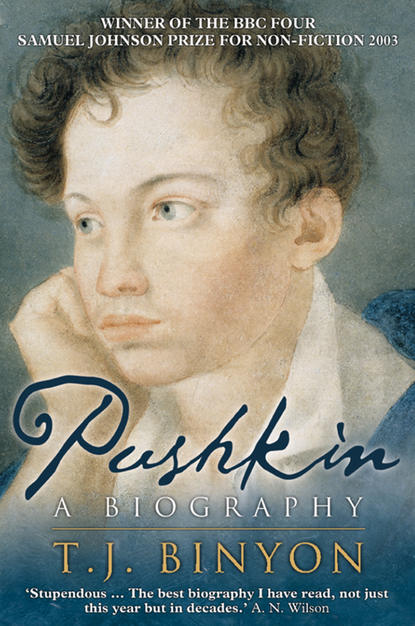По всем вопросам обращайтесь на: info@litportal.ru
(©) 2003-2024.
✖
Pushkin
Настройки чтения
Размер шрифта
Высота строк
Поля
Love thy stern, harmonious air,
The Nevaâs majestic flow,
The granite of her embankments,
Thy railingsâ iron pattern,
Thy pensive nightsâ
Translucent twilight, moonless glimmer,
When in my room
I write and read without a lamp,
And distinct are the sleeping piles
Of the empty streets, and bright
The Admiraltyâs spire,
And, not admitting nocturnal dark
To the golden heavens,
Dawn to replace dusk
Hastens, giving to night but half an hour.
I love your cruel winterâs
Still air and frost,
The flight of sleighs along the broad Neva,
Maidensâ faces brighter than roses,
The brilliance, hubbub and chatter of balls,
And at the bachelor banquet
The hiss of foaming beakers
And the blue flame of punch.
The Bronze Horseman, 43â66
THE PETERSBURG THROUGH WHICH the hero of Eugene Onegin moves in the first chapter of the poem is not fictional: it is the Petersburg of Pushkin. Eugeneâs friends and acquaintances, his amusements and diversions, his interests and infatuations are also Pushkinâs. This âdescription of the fashionable life of a St Petersburg young man at the end of 1819, reminiscent of Beppo, sombre Byronâs comic workâ,
(#litres_trial_promo) thus provides a skeleton on which to drape a description of Pushkinâs own social life at St Petersburg: his friends and associates, literary salons, the theatre, balls, gambling, liaisons, romances and flirtations.
Rising late, Eugene dons his âwide Bolivarâ to saunter up and down âthe boulevardâ â the shaded walk, lined by two rows of lime trees, which ran down the middle of the Nevsky from the Fontanka canal to the Moika. Warned by his watch that it is around four in the afternoon, he hurries to Talonâs French restaurant on the Nevsky, where Petr Kaverin, the hard-drinking hussar officer who considers cold champagne the best cure for the clap, is waiting. On 27 May 1819 Kaverin noted in his diary: âShcherbinin, Olsufev, Pushkin â supped with me in Petersburg â champagne had been put on ice the day before â by chance my beauty at that time (for the satisfaction of carnal desires) passed by â we called her in â the heat was insupportable â we asked Pushkin to prolong the memory of the evening in verse â here is the result:
A joyful evening in our life
Let us remember, youthful friends;
In the glass goblet champagneâs
Cold stream hissed.
We drank â and Venus with us
Sat sweating at the table.
When shall we four sit again
With whores, wine and pipes?â
(#litres_trial_promo)
Pushkin had not lost his taste for military company, though now he was as apt to mingle with generals as with subalterns, much to Pushchinâs disapproval. âThough liberal in his views, Pushkin had a kind of pathetic habit of betraying his noble character and often angered me and all of us by, for example, loving to consort in the orchestra-pit with Orlov, Chernyshev, Kiselev and others: with patronizing smiles they listened to his jokes and witticisms. If you made him a sign from the stalls, he would run over immediately. You would say to him: âWhy do you want, dear chap, to spend your time with that lot; not one of them is sympathetic to you, and so on.â He would listen patiently, begin to tickle you, embrace you, which he usually did when he was slightly flustered. A moment later you would see Pushkin again with the lions of that time!â
(#litres_trial_promo) However, something was to be gained from their company. When in 1819 he resurrected the idea of joining the hussars â âIâm sorry for poor Pushkin!â Batyushkov wrote from Naples. âHe wonât be a good officer, and there will be one good poet less. A terrible loss for poetry! Perchè? Tell me, for Godâs sake.â
(#litres_trial_promo) â General Kiselev promised him a commission. However, Major-General Aleksey Orlov â brother of Mikhail, he had âthe face of Eros, the figure of the Apollo Belvedere and Herculean musclesâ
(#litres_trial_promo) â dissuaded him from the idea, a service for which Pushkin, on second thoughts, was grateful: âOrlov, you are right: I forgo/My hussar dreams/And with Solomon exclaim:/Uniform and sabre â all is vanity!â
(#litres_trial_promo) Orlov was either extraordinarily magnanimous, or had no knowledge of the epigram Pushkin had devoted to him and his mistress, the ballet-dancer Istomina, in 1817:
Orlov in bed with Istomina
Lay in squalid nudity.
In the heated affair the inconstant general
Had not distinguished himself.
Not intending to insult her dear one,
Laïs took a microscope
And says: âLet me see,
My sweet, what you fucked me with.â
(#litres_trial_promo)





